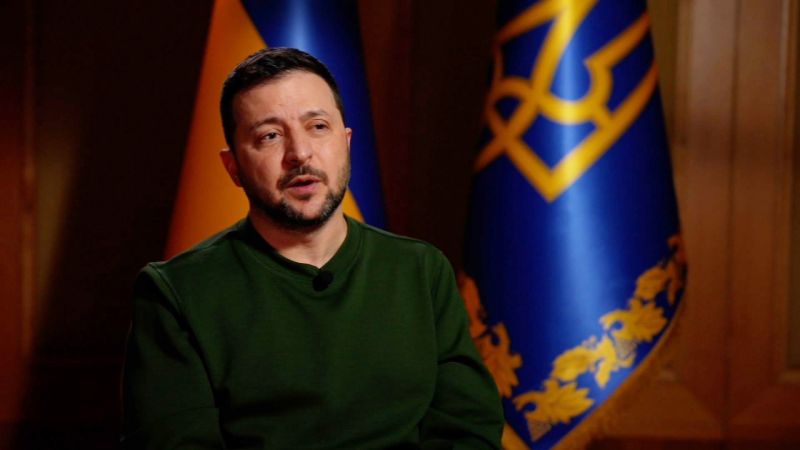Ukraine finds itself in a tight spot, caught in an unending struggle with Russia over territorial domination that began in 2014. In recent times, however, the grim reality of Ukraine’s conflict with Russia has become even more severe. The nation’s president, Volodymyr Zelensky, has sounded the alarm: ‘Ukraine will lose the war,’ he said, ‘if the US fails to approve aid’.
As the leader of a nation caught in the throes of battle, Zelensky’s statement highlights the pressing need for international support that Ukraine currently requires. The conflict, which initially started with Russia’s annexation of Ukraine’s Crimea region, has tormented the nation and inflicted significant socioeconomic and political turmoil. Since the war’s first shot was fired, Ukraine has relied heavily on foreign aid to sustain its defense mechanisms.
The US, in particular, has consistently been a pivotal player in this context. Boasting one of the most powerful military forces in the world, America’s support – or lack thereof – has always held significant weight in Ukraine’s war efforts. Zelensky’s statement brings this reality into sharp focus, revealing the codependent relationship between Ukraine’s survival and American aid.
The United States’ aid to the beleaguered nation primarily falls into two general categories: military and non-military aid. Military aid includes the supply of defense equipment and intelligence, while non-military support envelops financial aid and strategic advice.
Recently, Ukraine’s military aid request to Washington has emphasized the importance of lethal weaponry, asserting that these tools are needed to defend the country against Russian forces effectively. Zelensky’s comment underlines the urgency of this request. It positions the US support as a deciding factor in Ukraine’s battle against Russia – the success or failure of which may tip the balance in a high-stakes geopolitical power struggle.
While some critics may argue that a greater supply of lethal weapons may escalate the conflict further, others see it as the only viable method of safeguarding Ukraine against an overpowering foe. There’s also an ethical aspect to consider: by withholding aid, might the US indirectly be seen as corroborating with a force that many perceive as violating international law? These are some of the many factors that further complicate this issue.
However, as Zelensky’s words insinuate, it’s not just about Ukraine’s survival. The conflict’s outcome could decide the regional balance of power, and even have repercussions for international politics. The geopolitical significance of Ukraine, positioned between the Western world and Russia, amplifies the global impact of this conflict.
Therefore, the United States’ decision on Ukraine’s request for aid isn’t just a bilateral issue. It’s a matter of global concern. By denying the needed aid, the US could indirectly embolden aggressive maneuvers by Russia. In contrast, by agreeing to the request, the US could play a decisive role in curbing a conflict that has already lasted far too long and claimed too many lives.
Understanding this, it seems clear why Zelensky points towards the US being instrumental in deciding the war’s outcome. His statement serves as a passionate plea to the world’s foremost power to step in and aid Ukraine in its battle against a dominant adversary. The nature of their future relationship – and consequently, the future of Ukraine – hangs in the balance, awaiting the US’s verdict.




